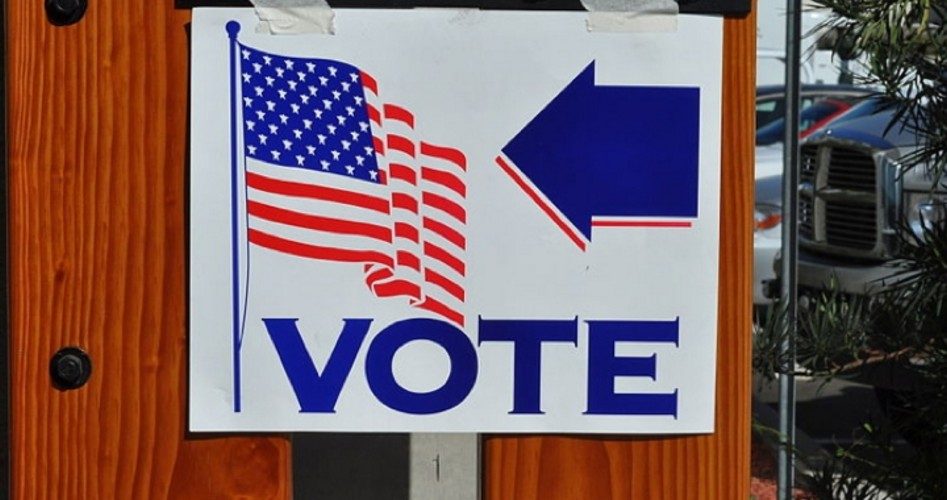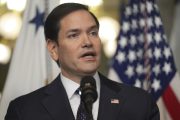
Since March 28, when President Obama issued an executive order creating the Presidential Commission on Election Administration, a growing number of individuals and organizations have reacted to this move by raising concerns about a possible federal takeover of American elections.
The commission, created by Executive Order 13639, will be composed of no more than nine members, led by two co-chairs, Robert Bauer and Benjamin Ginsberg, attorneys for the Obama and Romney campaigns respectively.
The commission will study and make recommendations on such topics as more efficient procedures leading to shorter wait times for voters, poll worker recruitment and training, voting technology, ballot simplicity, provisional ballot procedures, and contingency plans in case of natural disasters or other emergencies that could disrupt elections.
Breitbart.com quoted such people as J. Christian Adams, a former attorney in the U.S. Department of Justice, and radio talk-show host Mark Levin as opposed to this action by the president.
Adams’ website noted that this commission’s origin can be traced to the president’s State of the Union Address in which he announced his intention to create a bipartisan commission to seek to solve issues such as long lines at the polls. Adams’ website disputed Obama’s claims of long lines at the polls: “This is a solution in search of a problem, because long lines and long waits were the rare exception, and usually occurred in early voting sites, and not on Election Day.”
Adam’s website also raised issues fundamental to the separation of powers in our constitutional Republic:
The federal government is forever searching for more ways to snatch power from the states; that’s the nature of the beast. No Republicans should acquiesce to another federal power grab over state elections — dispersing power over elections means that no one entity, or person, can easily manipulate the process. The Founders knew that decentralized control over the process helps preserve individual liberty.
Should Elections Be Rescheduled or Extended for Natural Disasters or Excessive Voter Turnout?
Executive Order 13639 authorizes the commission to address “the adequacy of contingency plans for natural disasters and other emergencies that may disrupt elections.”
The ability to reschedule all or part of an election has the potential for those in power to manipulate the outcome of the election. Constitutionalists have pointed out that any decision of this nature should be authorized by state law, not federal. The decision-making authority and the scope of the rescheduling should be decentralized as much as possible. Furthermore, the decision must be made in public. Even with safeguards such as these, history has shown this to be an opportunity for manipulation.
An example of such chicanery can be found 200 years ago in our history, in the close congressional contest in Virginia between Burwell Bassett and Thomas Bayly for a seat in the 13th Congress, which convened March 4, 1813. The final report of the Committee of Elections quoted Virginia law that allowed for extending an election day into three days under certain conditions:
If the electors who appear to be so numerous that they all cannot be polled in one day, before sun sitting [sic], or if by rain or rise of water courses, many of the electors have been hindered from attending, the sheriff or under sheriff may, by request of any one or more of the candidates, adjourn the proceeding on the poll until the next day.
The report added: “About sun sitting four persons appeared, and demanded the privilege to vote; two of these were deputies of the sheriff, who were present during the day assisting in the election.”
The committee concluded that this was a manufactured appearance of a need to extend voting. During the extended voting, Bayly received an additional 53 votes to Bassett’s 4. Bayly was still seated in Congress even after these 57 votes were deducted. This example of electoral shenanigans using the ability to reschedule or extend voting should serve as wake-up call to the dangers of such laws, especially if the authority is unconstitutionally placed at the federal level.
The recent experience of the 2012 Republican caucuses in Maine shows the danger of empowering one person or small group of persons to postpone voting. The caucuses in Washington County, a Ron Paul stronghold, were rescheduled and then told their votes would not count.
Despite this and other problems in Maine’s GOP caucuses, the results were used as part of the criteria for unseating 10 Ron Paul delegates and replacing them with Mitt Romney delegates.
The Danger of Allowing Arbitrary Rule-making for Anticipated Disruptions
Prior to the 2012 Iowa caucuses there was a false alarm threat of disruption. The reaction by GOP party officials, with no explanation made, was to move the centralized vote accumulation behind closed doors instead of adopting an open-door strategy to deal with the supposed threat.
In an open-door approach to dealing with threats of disruption, officials could simply have made the following announcement:
There is a chance an attempt may be made to disrupt the Iowa Caucuses. For that reason, we ask all people with video cameras to bring them to the caucuses in order to help identify any disrupters and record their actions. We ask all caucus chairmen to make certain the vote counts are done in public. If paper ballots are used, the ballots must not leave the room until they are counted in front of the voters who cast them.
In order to ensure the capability to reconstruct the vote totals in case that becomes necessary, the precinct vote counts must be announced immediately with as many people as possible making videos. If possible, at least one person per precinct will be identified to upload the vote totals announcement to a public website. The vote accumulation will be at the state party headquarters in Des Moines as is customary.
Not only is decentralization of power essential to protecting liberty, but it also empowers the states to compete to see which can make the most improvements in government. Contingency planning for adverse situations affecting elections belongs at the state level. If the federal government usurps this power, it’s possible that in the future a president would be tempted to generate a false alarm as an excuse to conduct elections behind closed doors.
Advisory-only Commission
Though the president’s new Commission on Election Administration is officially described as merely advisory in nature, experience has shown that such bodies have a habit of morphing into full-blown regulatory agencies, by increasing either their own size and scope or that of some other federal agency. The danger of scope creep in this latest commission of President Obama is very real, as there is a corresponding legislative agenda in Washington. The New American noted on March 8 that there are no fewer than five bills currently in Congress that would increase federal power over elections. The article explained how numerous provisions in these bills would unconstitutionally centralize power over elections as well as degrade many existing electoral safeguards.
Dictators establish many well-known mechanisms for control over their people: abolishing the right to bear arms, freedom of speech, and freedom of the press, just to name a few. As we have seen, lesser known but equally deserving of attention, are the subtler and more clever means such as centralizing control over elections and moving as much as possible of the electoral process behind closed doors.


